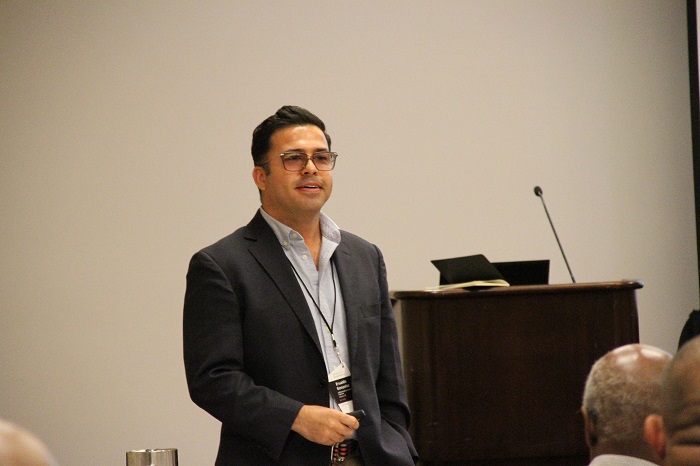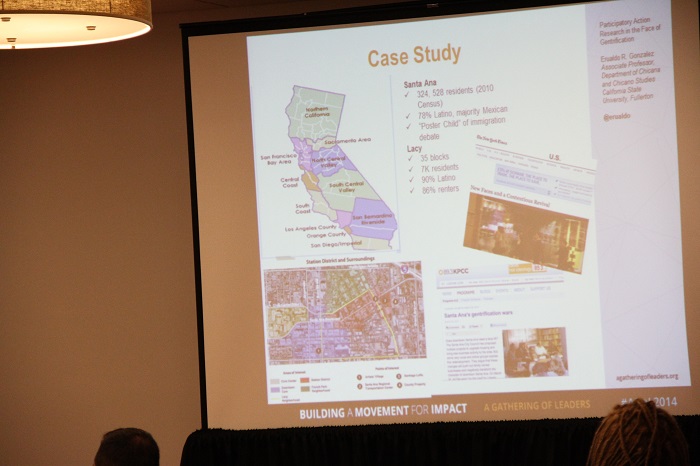Data Is a Civil Rights Issue
This session shared knowledge on how to gather illuminating data about local education systems, tips on how to use this data effectively, and guidance in developing early action plans and strategic targets.
Presenters/Moderators
Erualdo R. Gonzalez
CSU Fullerton
Howard M. Walters
OMG Center/RWJF New Connections
Main Points
- Data is important because it can provide guidance in developing early action plans and strategic targets on local reforming education systems, addressing gentrification, racial profiling by the police, and immigration/deportation issues.
- Data is key to re-frame the conversation around college and career readiness for boys and men of color because it can show systemic deficits (i.e. young men of color with less access to counselors, no support for Advanced Placement enrollment and exam taking).
- Data-focused efforts can reveal an alternative to displacement in low-income communities and communities of color.
Key Strategies
- Employ community mapping and community-led data collection.
- Tap neighborhood bloggers for their data.
Action Steps
- Involve both grassroots and grasstop community members when collecting and utilizing data for policy change.
- In an anti-gentrification community-led effort, conduct a survey of neighborhood residents to gather information on housing, culture, safety, etc. and translate that data into an alternative to the gentrification plan.
Standout Quotes
"Data can be utilized to reframe the conversation around systems deficits that affect the health and success of boys and men of color, especially when it comes to college and career readiness."
Rhonda Bryant
"We must peel the onion to find multiple layers of data, from uncovering democracy and justice pressure points to halting displacement to urban governance reform."
Erualdo Gonzalez




